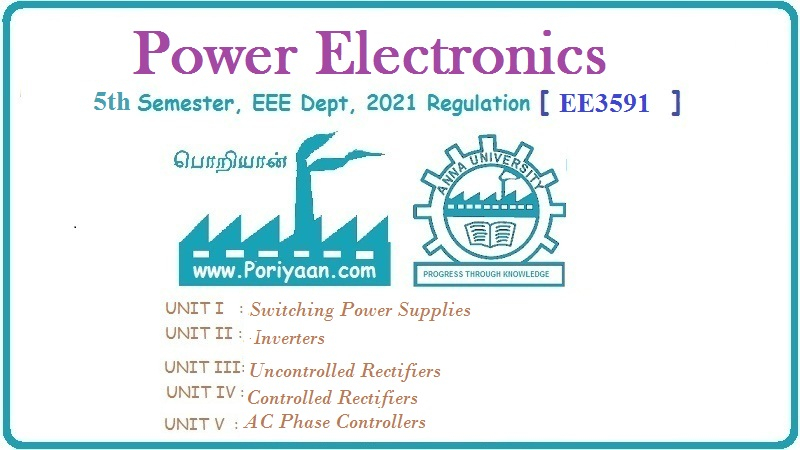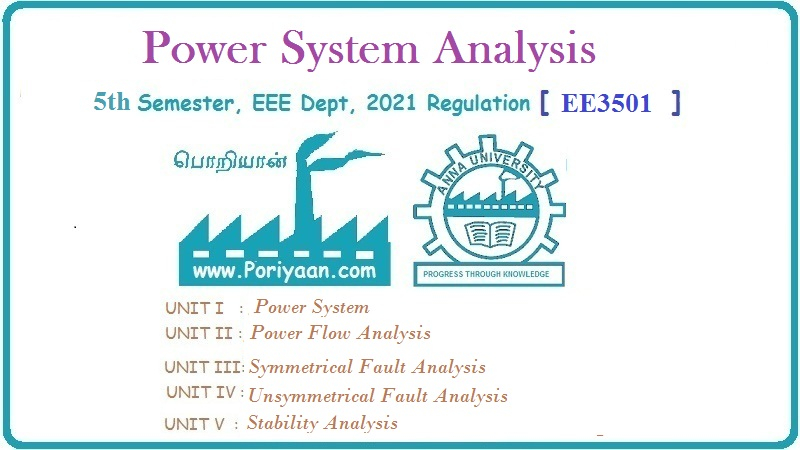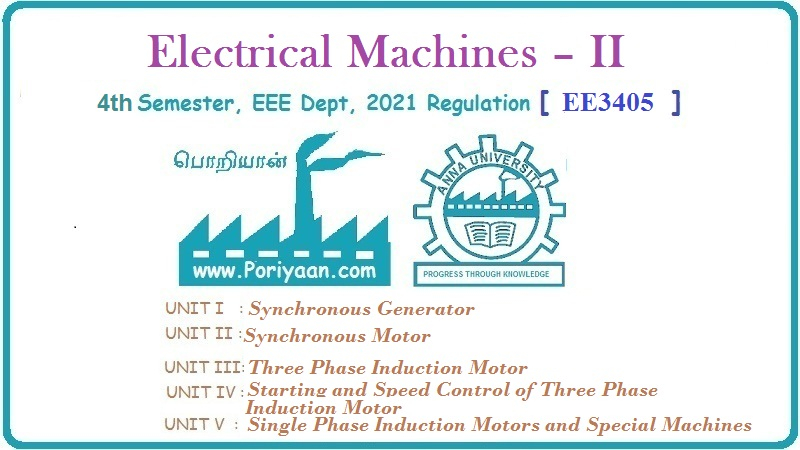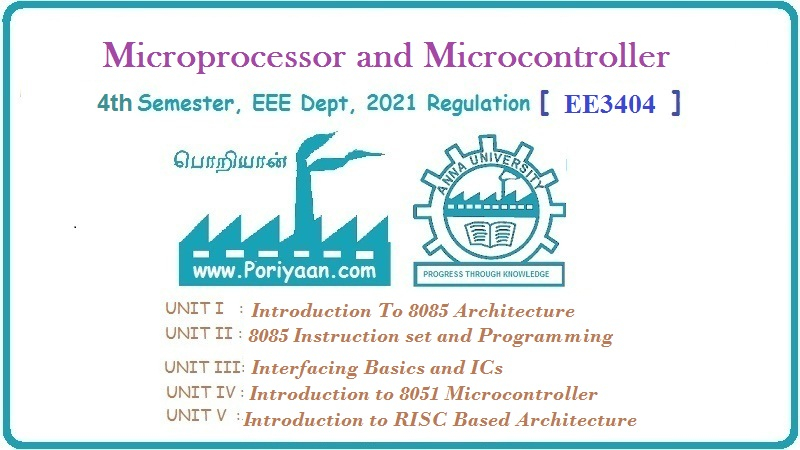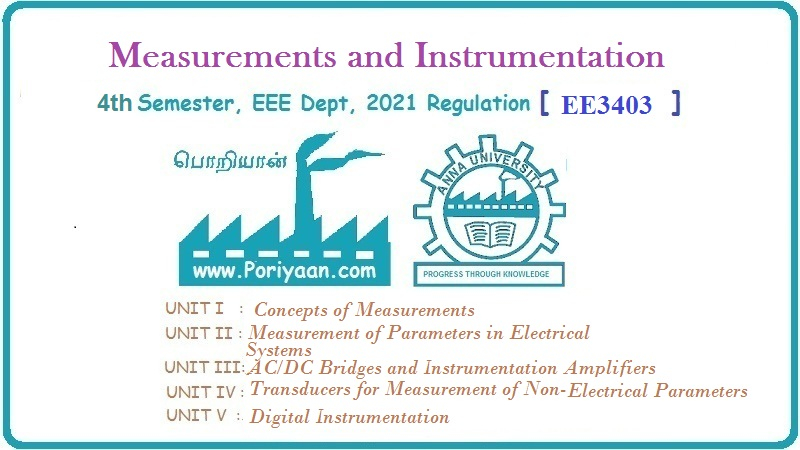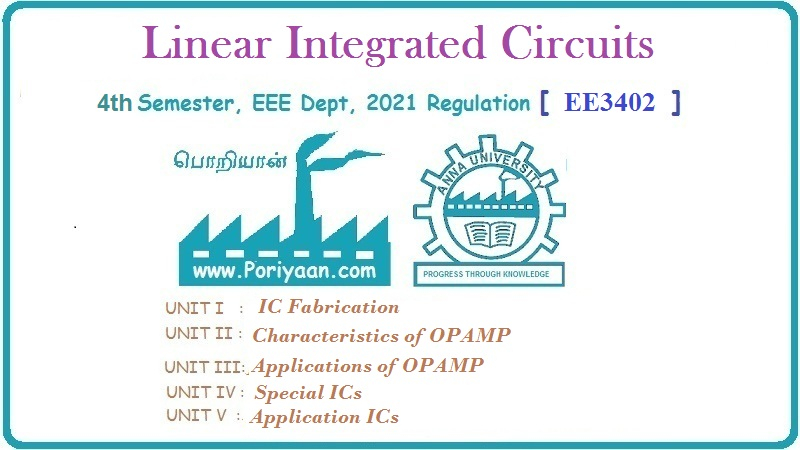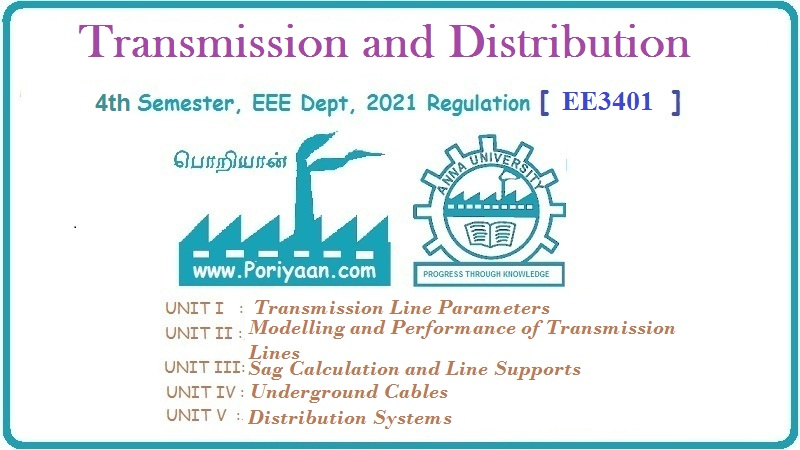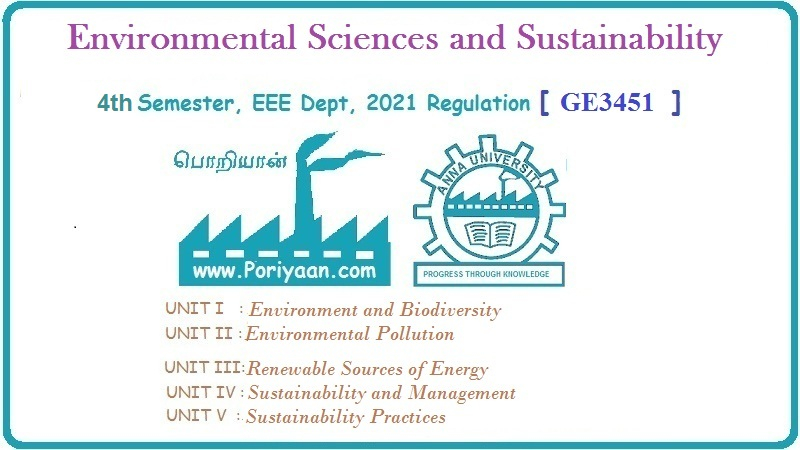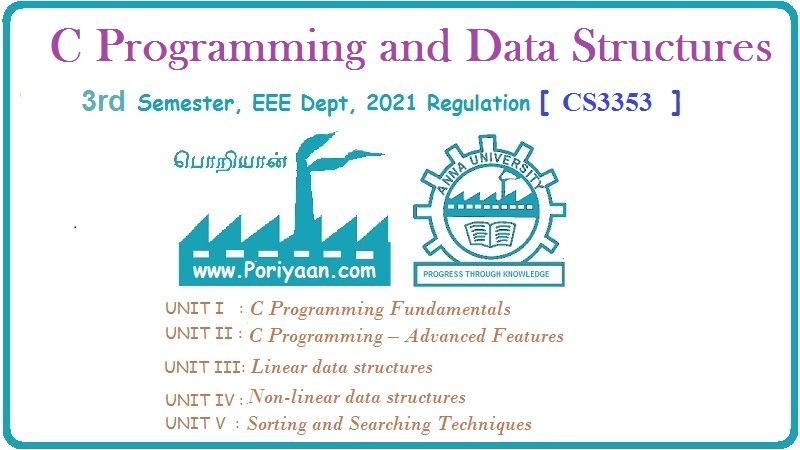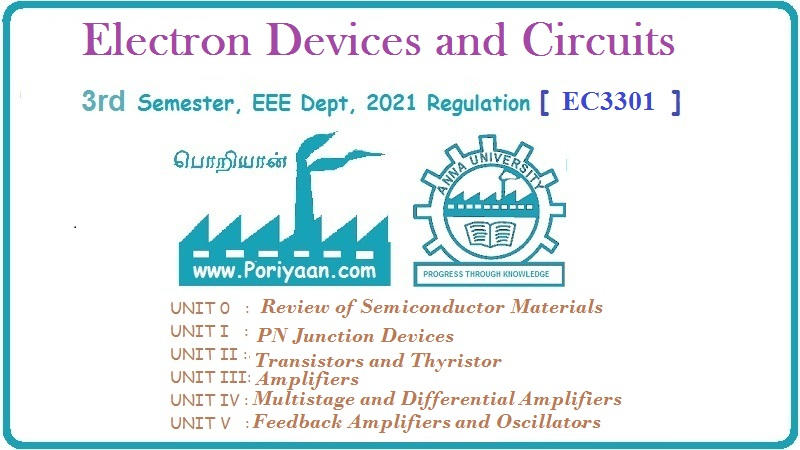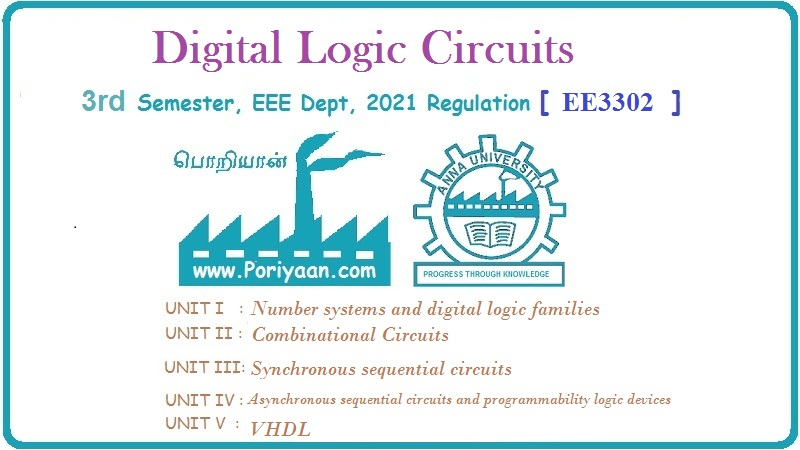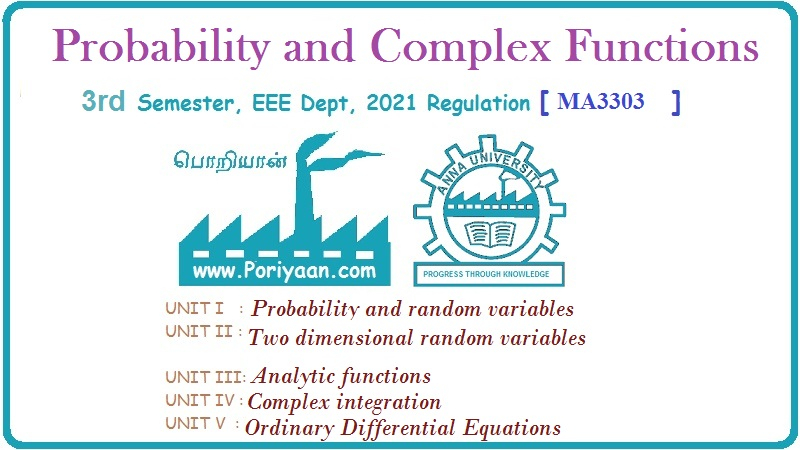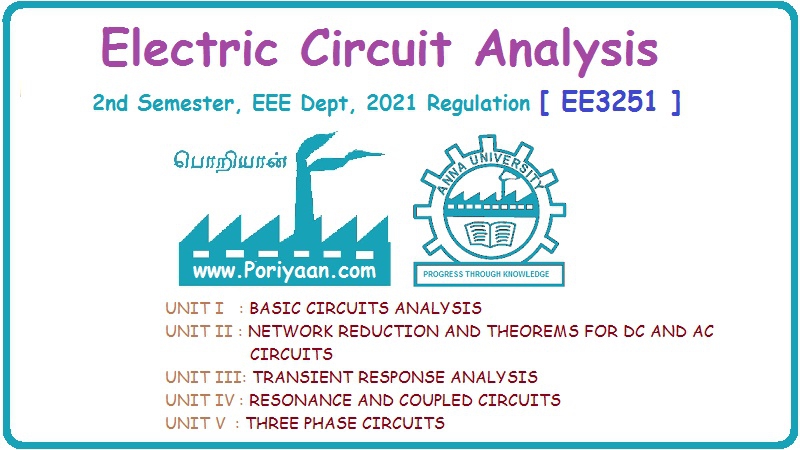Professional English II
HS3251 2nd Semester 2021 Regulation

2021 regulation - 1st year, 2nd semester paper for all department including EEE, ECE, MECH, CIVIL, CES, IT, etc. Subject Code: HS3251, Subject Name: Professional English II, Batch: 2021, 2022, 2023, 2024. Institute: Anna University Affiliated Engineering College, TamilNadu. This page has Professional English II study material, notes, semester question paper pdf download, important questions, lecture notes.
PDF Download Links
Professional English II
- Vocabulary : Contextual Meaning of Words
- Exercise [Vocabulary Contextual Meaning of Words]
- Exercise (50 most difficult words in English and their meaning)
- Word Formation (noun-verb-adj-adv)
- Exercise [Word Formation]
- Adverbs
- Exercise [Adverbs]
- Compound Words
- Exercise 1, 2, 3, 4 [Compound Words]
- Sentence Completion
- Exercise [Sentence Completion]
- Conjunctions
- Exercise [Conjunctions]
- Use of Prepositions
- List of Common Prepositions
- Exercise [Prepositions]
- Idioms
- Exercise [Idioms]
- Writing Professional Emails
- Exercise [Writing Professional Emails]
- Compare and Contrast Essay
- Example 1 [Compare and Contrast Essay]
- Example 2 [Compare and Contrast Essay]
- Example 3 [Compare and Contrast Essay]
- Example 4 [Compare and Contrast Essay]
- Example 5 [Compare and Contrast Essay]
- Exercise [Compare and Contrast Essay]
- Job Application Letters/Email
- Examples Job Application Letters or Email
- Exercise [Job Application Letters or Email]
- Internship Application
- Examples for Internship Application
- Exercise [Internship Application]
- Cover Letter and Resume
- How to Make a Resume - Step by step
- Exercise [Cover Letter and Resume]
- Solved Model Question Papers Set 1 [PART A]
- Solved Model Question Papers Set 1 [PART B]
- Solved Model Question Papers Set 1 [PART B]
- Solved Model Question Papers Set 1 [PART B]
- Solved Model Question Papers Set 1 [PART B]
- Solved Model Question Papers Set 2
- Model Question Papers Set 3 [PART A]
- Solved Model Question Papers Set 3 [PART B]
PDF Download Links
Professional English II
General Grammar
- Vocabulary : Contextual Meaning of Words
- Exercise [Vocabulary Contextual Meaning of Words]
- Exercise (50 most difficult words in English and their meaning)
- Word Formation (noun-verb-adj-adv)
- Exercise [Word Formation]
- Adverbs
- Exercise [Adverbs]
- Compound Words
- Exercise 1, 2, 3, 4 [Compound Words]
- Sentence Completion
- Exercise [Sentence Completion]
- Conjunctions
- Exercise [Conjunctions]
- Use of Prepositions
- List of Common Prepositions
- Exercise [Prepositions]
- Idioms
- Exercise [Idioms]
Grammar: UNIT 4
Writing: UNIT 1
- Writing Professional Emails
- Exercise [Writing Professional Emails]
- Compare and Contrast Essay
- Example 1 [Compare and Contrast Essay]
- Example 2 [Compare and Contrast Essay]
- Example 3 [Compare and Contrast Essay]
- Example 4 [Compare and Contrast Essay]
- Example 5 [Compare and Contrast Essay]
- Exercise [Compare and Contrast Essay]
Writing: UNIT 5
- Job Application Letters/Email
- Examples Job Application Letters or Email
- Exercise [Job Application Letters or Email]
- Internship Application
- Examples for Internship Application
- Exercise [Internship Application]
- Cover Letter and Resume
- How to Make a Resume - Step by step
- Exercise [Cover Letter and Resume]
Speaking: UNIT 1
Speaking: UNIT 3
Reading: UNIT 4
Solved Model Question Papers
- Solved Model Question Papers Set 1 [PART A]
- Solved Model Question Papers Set 1 [PART B]
- Solved Model Question Papers Set 1 [PART B]
- Solved Model Question Papers Set 1 [PART B]
- Solved Model Question Papers Set 1 [PART B]
- Solved Model Question Papers Set 2
- Model Question Papers Set 3 [PART A]
- Solved Model Question Papers Set 3 [PART B]
PDF Download Links

HS3251
PROFESSIONAL ENGLISH - II
OBJECTIVES:
•
To engage learners in meaningful language activities to improve their reading
and writing skills
•
To learn various reading strategies and apply in comprehending documents in
professional context.
•
To help learners understand the purpose, audience, contexts of different types
of writing
•
To develop analytical thinking skills for problem solving in communicative
contexts
•
To demonstrate an understanding of job applications and interviews for
internship and placements
UNIT I
MAKING COMPARISONS
Reading
- Reading advertisements, user manuals, brochures; Writing - Professional
emails, Email etiquette - Compare and Contrast Essay; Grammar - Mixed Tenses,
Prepositional phrases
UNIT II
EXPRESSING CAUSAL RELATIONS IN SPEAKING AND WRITING
Reading
- Reading longer technical texts- Cause and Effect Essays, and Letters / emails
of complaint, Writing - Writing responses to complaints. Grammar - Active
Passive Voice transformations, Infinitive and Gerunds
UNIT III
PROBLEM SOLVING
Reading
- Case Studies, excerpts from literary texts, news reports etc. Writing -
Letter to the Editor, Checklists, Problem solution essay / Argumentative Essay.
Grammar - Error correction; If conditional sentences
UNIT IV
REPORTING OF EVENTS AND RESEARCH
Reading
-Newspaper articles; Writing - Recommendations, Transcoding, Accident Report,
Survey Report Grammar - Reported Speech, Modals Vocabulary - Conjunctions- use
of prepositions
UNIT V
THE ABILITY TO PUT IDEAS OR INFORMATION COGENTLY
Reading
Company profiles, Statement of Purpose, (SOP), an excerpt of interview with
professionals; Writing - Job / Internship application - Cover letter &
Resume; Grammar - Numerical adjectives, Relative Clauses.
TOTAL:
30 PERIODS
OUTCOMES:
At
the end of the course, learners will be able
•
To compare and contrast products and ideas in technical texts.
•
To identify cause and effects in events, industrial processes through technical
texts
•
To analyse problems in order to arrive at feasible solutions and communicate
them orally and in the written format.
•
To report events and the processes of technical and industrial nature.
•
To present their opinions in a planned and logical manner, and draft effective
resumes in context of job search.
TEXT BOOKS:
1.
English for Engineers & Technologists (2020 edition) Orient Blackswan
Private Ltd. Department of English, Anna University.
2.
English for Science & Technology Cambridge University Press 2021.
3.
Authored by Dr. Veena Selvam, Dr. Sujatha Priyadarshini, Dr. Deepa Mary
Francis, Dr. KN. Shoba, and Dr. Lourdes Joevani, Department of English, Anna
University.
REFERENCES:
1.
Raman. Meenakshi, Sharma. Sangeeta (2019). Professional English. Oxford
university press. New Delhi.
2.
Improve Your Writing ed. V.N. Arora and Laxmi Chandra, Oxford Univ. Press,
2001, NewDelhi.
3.
Learning to Communicate - Dr. V. Chellammal. Allied Publishers, New Delhi, 2003
4.
Business Correspondence and Report Writing by Prof. R.C. Sharma & Krishna
Mohan, Tata McGraw Hill & Co. Ltd., 2001, New Delhi.
5.
Developing Communication Skills by Krishna Mohan, Meera Bannerji- Macmillan
India Ltd. 1990, Delhi.
ASSESSMENT PATTERN
Two
internal assessments and an end semester examination to test students' reading
and writing skills along with their grammatical and lexical competence.
Professional English: General Grammar,, Professional English: Grammar: UNIT 1,, Professional English: Grammar: UNIT 2,, Professional English: Grammar: UNIT 3,, Professional English: Grammar: UNIT 4,, Professional English: Grammar: UNIT 5,, Professional English: Writing: UNIT 1,, Professional English: Writing: UNIT 2,, Professional English: Writing: UNIT 3,, Professional English: Writing: UNIT 4,, Professional English: Writing: UNIT 5,, Professional English: Listening: UNIT 1,, Professional English: Listening: UNIT 2,, Professional English: Listening: UNIT 3,, Professional English: Listening: UNIT 5,, Professional English: Speaking: UNIT 1,, Professional English: Speaking: UNIT 2,, Professional English: Speaking: UNIT 3,, Professional English: Speaking: UNIT 4,, Professional English: Speaking: UNIT 5,, Professional English: Reading: UNIT 1,, Professional English: Reading: UNIT 2,, Professional English: Reading: UNIT 3,, Professional English: Reading: UNIT 4,, Professional English: Reading: UNIT 5,, Professional English: Solved Model Question Papers 2nd Semester Common to all Dept 2021 Regulation : HS3251 2nd Semester 2021 Regulation Professional English II
